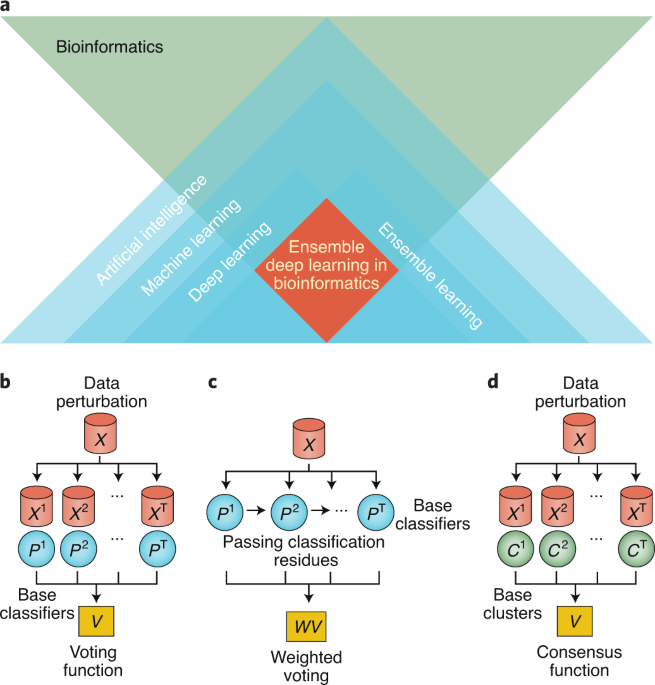6 Simple Techniques For Bioinformatics Tutor
6 Simple Techniques For Bioinformatics Tutor
Blog Article
Excitement About Bioinformatics Tutor
Table of ContentsOur Bioinformatics Tutor Ideas6 Simple Techniques For Bioinformatics TutorThings about Bioinformatics TutorThe Single Strategy To Use For Bioinformatics TutorThe 5-Minute Rule for Bioinformatics Tutor
First project advancement is fairly lengthy, as it entails careful preparation of the topic, structuring of deliverables, and consideration of the abilities and experience levels of participants. Nonetheless, once a job has actually been plainly defined and carried out, it has the potential to be reused in future sessions with only minor alterations to reflect updates in the field or fit distinctions in participant backgrounds. This makes project-based learning a effective and lasting teaching technique in the future, particularly in swiftly evolving disciplines like bioinformatics.To make certain continuity and reproducibility of understanding, providing shared lab notebooks-- either digital or physical-- is important. These note pads work as collective logs where pupils can videotape their progression, code, techniques, and results throughout the course. Not just do they enhance learning by encouraging documentation and representation, yet they additionally act as post-course referral products that individuals can get in touch with in future study or scholastic jobs.
Mentors play an essential duty in the success of project-based training courses. Preferably, coaches ought to be active researchers with a comprehensive and current understanding of both the theoretical foundations and practical applications of bioinformatics in their corresponding self-controls. Their capability to bridge facility concepts and real-world execution is crucial in helping trainees browse the difficulties of interdisciplinary study. Moreover, coaches likewise function as function versions and influence trainees to continue seeking occupations in computational biology and related areas.
Some Known Questions About Bioinformatics Tutor.
One more trick aspect of the discovering procedure is supplying individuals the chance to offer their work to others, specifically to an audience past their instant task team. Last presentations or mini-conferences allow trainees to verbalize their searchings for, obtain constructive feedback, and gain confidence in interacting clinical web content. This discussion part is frequently a preferred amongst trainees, as it confirms their initiatives and highlights the real-world importance of their job.
Each version of the program was fine-tuned based on individual responses and advancing ideal methods in pedagogy. Bioinformatics Tutor. These adaptations ensured that the core purposes-- hands-on discovering, partnership, and applied analytic-- continued to be intact while expanding the deepness and breadth of subjects covered.
A significant visualization that captured individual sentiment was a word cloud created from feedbacks to the 2014 end-of-course survey. This aesthetic comments enhanced the program's focus on experiential learning and mentor support.
The contributions of people such as Rustici, G., Orchard, S., Cowley, A., and Twells, R., together with various other members of the EBI user-training-working group, contributed in fine-tuning the training course structure and web content. Their insights assisted form a adaptable and inclusive design that can be adapted to different institutional and local contexts.
Bioinformatics Tutor Things To Know Before You Get This

Jones, Rasmussen, and Moffitt (1997) likewise supported for interdisciplinary knowing via collective task work, anonymous noting its capability to imitate expert settings and prepare students for future scholastic or sector roles. In a thorough review, Thomas (2000) examined numerous research studies on PBL and ended that students not only do well academically yet also establish a much deeper understanding of the subject and enhanced synergy skills.
In the context of bioinformatics education, ingenious approaches like classroom games and simulation-based training have also been utilized. Schneider and Jimenez (2013) introduced the use of interactive games to instruct organic information combination, making it possible for pupils to realize complex concepts through experiential learning. This type of gamification matches the hands-on knowing highlighted in project-based training courses by presenting a component of enjoyable and competitors, which can better boost involvement.
Going back to the training course reviewed below, the lessons picked up from the execution of project-based discovering in a bioinformatics setting have wider implications for other STEM areas. The technique stresses not simply technical proficiency, yet likewise communication, cooperation, and crucial thinking-- abilities that are significantly valued news in both academic community and market.
Not known Details About Bioinformatics Tutor
The scalability of the training course format additionally makes it a feasible model for various other institutions. With ideal personalization based upon local demands, offered sources, and participant accounts, the framework can be duplicated or adjusted for use in various other scientific domains. In addition, the addition of organized mentorship and assessment methods helps make website link sure consistent top quality and measurable discovering outcomes.

Finally, project-based knowing in bioinformatics supplies a powerful technique to training complex, interdisciplinary material in a manner that is both available and intellectually promoting. By stressing collaboration, functional application, and essential inquiry, such efforts not just boost individual knowing however also add to the cultivation of a brand-new generation of cutting-edge and skilled researchers.
Bioinformatics Tutor for Beginners

One more secret element of the understanding procedure is providing participants the opportunity to present their work to others, especially to an audience beyond their instant job group.In the wider instructional literature, project-based discovering (PBL) has actually been thoroughly examined and verified as an efficient technique for advertising deep understanding, important reasoning, and transferable skills. Adderley et al. (1975) highlighted the worth of task approaches in greater education and learning, noting that they promote active learning and freedom. Schneider and Jimenez (2013) presented the usage of interactive games to instruct biological data assimilation, making it possible for pupils to comprehend complicated concepts through experiential learning.
Report this page